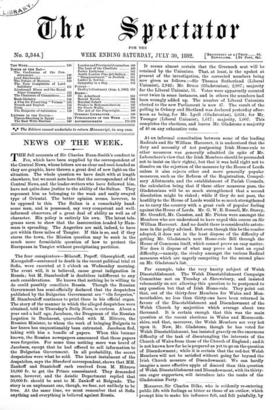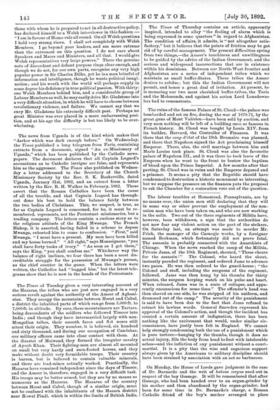Moreover, Sir Charles Dilke, who is evidently re-entering public life
with feelings as bitter as those of an outlaw, which prompt him to make his influence felt, and felt painfully, by those with whom he is prepared to act in all destructive policy, has declared himself to a Welsh interviewer in this fashion :— " I am in favour of Home-rule all round. On all Welsh questions I hold very strong views. I shall act completely with Welsh Members. I go beyond your leaders, and am more extreme than the extremest on this question. I do not care about Speakers and Maces and Ministers, and all that. I would give Welsh representatives very large powers." There the genuine note of discordant and defiant purpose rings clear enough, and though we do not, for our own parts, recognise any very high popular power in Sir Charles Dilke, yet he is a man brimful of information and intelligence, though he wants political imagi- nation; and his wrath with the world will perhaps supply in some degree his deficiency in true political passion. With thirty- one Welsh Members behind him, and a considerable group of Labour Members as well, he may easily drive Mr. Gladstone into a very difficult situation, in which he will have to choose between revolutionary violence, and failure. We cannot say that we envy Mr. Gladstone his extremely difficult post. Perhaps no great Minister was ever placed in a more embarrassing posi- tion, and at his age the difficulty is but too likely to be over- whelming.



































